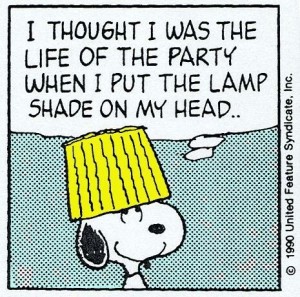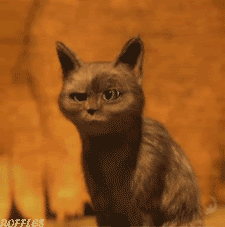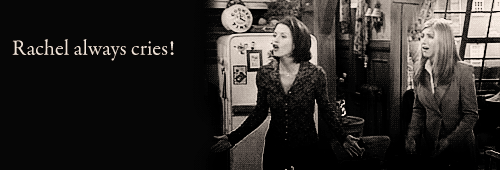My Top Five Humor Tropes
What’s life without whimsy? Laughter truly is the best medicine, which is why many writers like to include a little comedy even in dramatic works. Humor is one of the most appealing genres of fiction, but it’s also one of the most challenging to write. That’s where humor tropes come in! When in need of a little comedy, a good humor trope may be just the thing to lighten the mood and keep your stories from becoming too grim.
So in the spirit of April Fools’ month, here are five of my favorite humor tropes. I hope you’ll find these as entertaining as I do! Enjoy!
1) Lampshade Hanging
 Lampshade Hanging is easily my favorite humor trope. I wrote a whole post about it in my first few months of blogging! I just love when fictional characters draw attention to the ridiculousness of a situation they’re in, almost as if they’re purposely leaning on the fourth wall to let the audience know they “see it too”. The practice of “hanging lampshades” is a handy technique writers use to demonstrate their own awareness of intentional details in their stories that would otherwise be dismissed by the audience as mistakes or simply bad writing – a sort of “self-deprecation” device, if you will. Note that the best way to use a lampshade in comedy is as a standalone comment: bring it up once, then move on and never mention it again. A classic way to entertain your audience while keeping the critics at bay, Lampshade Hanging is a great go-to trope for adding a touch of clever humor to your stories!
Lampshade Hanging is easily my favorite humor trope. I wrote a whole post about it in my first few months of blogging! I just love when fictional characters draw attention to the ridiculousness of a situation they’re in, almost as if they’re purposely leaning on the fourth wall to let the audience know they “see it too”. The practice of “hanging lampshades” is a handy technique writers use to demonstrate their own awareness of intentional details in their stories that would otherwise be dismissed by the audience as mistakes or simply bad writing – a sort of “self-deprecation” device, if you will. Note that the best way to use a lampshade in comedy is as a standalone comment: bring it up once, then move on and never mention it again. A classic way to entertain your audience while keeping the critics at bay, Lampshade Hanging is a great go-to trope for adding a touch of clever humor to your stories!
2) Brick Joke
It’s gonna be legen… wait for it… [falls asleep]
You know when a joke is set up at one point in a story only for the punchline to come later, when you’ve almost forgotten about it? Well, that’s a special kind of humor device called a Brick Joke. This is the comedic version of the Chekhov’s Gun, when the conclusion to a funny scene is delivered separately from its beginning after several unrelated events have happened in between. This trope is named after an old joke consisting of two parts, the first ending with an underwhelming punchline about a brick and the second ending with a twist that recalls the same brick. The humor of a Brick Joke comes from subverting the audience’s expectations: what at first appear to be separate situations turn out to be two parts of the same joke. To properly execute a Brick Joke, scatter a few jokes between the set-up and the punchline so as to either dissuade the audience’s suspicion that the first part was building up to a joke or trick them into thinking the first part was the joke. With the right timing, this trope can score major laughs from your readers! They won’t know what hit ’em!
[5 minutes later; waking up when the door slams] -dary!
– Barney Stinson, How I Met Your Mother (Season 2, Episode 11 – How Lily Stole Christmas)
3) Running Gag

Ooooh! (Puss in Boots, 2011)
A sister trope of the Brick Joke, the Running Gag is another popular comedic device, especially in TV series. It’s also one of the riskiest; when done poorly, it quickly becomes annoying, but when done well, it can rake in a lot of laughs. A Running Gag is basically a joke that’s repeated over the course of a story or series (a minimum of three times), sort of like a recurring punchline to the same Brick Joke. It usually involves the same character(s) each time it comes up, though this needn’t be the case when the humor of the gag is entirely in the action itself. The key to a good Running Gag is timing: space the punchline recurrences far enough apart to keep the joke from wearing out too quickly, but add enough recurrences to draw as much laughter from the audience as possible. This may take a lot of practice to get right, especially since humor is so subjective, but once you get the hang of it, the Running Gag can make an excellent addition to your arsenal of comedy tropes!
4) I Resemble That Remark
Amy: You were being totally obstinate!
Knuckles: I don’t know what “obstinate” means, but I refuse to learn.
– Sonic Boom (Season 1, Episode 22 – The Curse of Buddy Buddy Temple)
Sometimes in comedy, one character will call another out on a flaw, only for this second character to object… in a way that demonstrates the exact flaw they’re denying. I Resemble That Remark is one example of the many humorous uses of irony, in this case comically subverting characters’ perceptions of themselves. It’s one of those comedic devices that draws its humor from an element of truth, as it plays on the all-too-common scenario where a trait that a person will swear is nothing like them will in fact turn out to be one of their defining characteristics. Think of it as an exercise in learning to laugh at yourself; if you find yourself identifying with fictional characters who can’t see their own shortcomings, maybe it’s time to reevaluate that idealized self-image!

Monica: Rachel always cries!
Rachel: [sobbing] That’s not true!
– Friends (Season 4, Episode 4 – The One With The Ballroom Dancing)
(Source: Tumblr)
5) Hypocritical Humor
Mike: I’m gonna go to the bathroom.
Phoebe: Okay, well you put down the toilet seat.
Mike: Yes, dear. [leaves]
Monica: Is that a bit you guys do?
Phoebe: Uh-huh, we’re playing you two.
Monica: We don’t do that! [to Chandler] Tell her we don’t do that!
Chandler: Yes, dear.
– Friends (Season 9, Episode 16 – The One With The Boob Job)
The previous item on this list is a subtrope of a device known as Hypocritical Humor. This trope comes in a variety of flavors: saying one thing and doing the exact opposite, exhibiting a behavioral flaw immediately after denying said behavior, criticizing or making fun of others for faults of which the accuser him- or herself is guilty, or ignoring several warnings of an impending event only to get upset when said event happens. One particularly hilarious form of this trope is when the irony comes from the universe aligning itself exactly right to contradict a statement the exact moment after someone says it, which can either be a way of tempting fate or invoking karmic justice, depending on the nature of the statement. Note that Hypocritical Humor in fiction constitutes jokes that are intentionally added to a story to be played for laughs; unintentional hypocrisy is more likely attributable to bad writing and, in cases where it still evokes some laughter, may fall under a phenomenon known as Narm (that is, what is meant to be serious but is accidentally funny instead). Be careful how you deploy that hypocrisy in your fiction!
What are your favorite humor tropes? Which humor tropes have you used in your stories?


Recent Comments